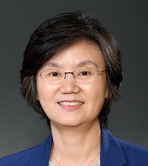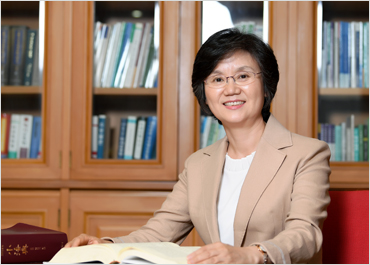
NOH Jeong-hee
The Honorable Noh Jeong-hee was born in Gwangju in 1963. Justice Noh earned her LL.B. from Ewha Womans University and passed the 29th National Judicial Examination in 1987. Justice Noh was appointed as a judge in March 1990 and started her judgeship at Chuncheon District Court. She resigned from the bench in December 1995 to enter into private practice and was re-appointed as a judge on February 19, 2001. She served at Incheon District Court, Seoul High Court, Judicial Research and Training Institute and other courts until she was appointed as Supreme Court Justice in August 2018 while serving as the President of Supreme Court Library.
Based on the five years of experience as a lawyer, Justice Noh presided over trials in a sound and reliable way to the satisfaction of the parties and is known for her affable and cordial character, all of which contributed to command deep trust from both on and off the bench. She has also delivered numerous decisions that contributed to uphold the human rights of the minority and the socially vulnerable such as women, children and people with disabilities and that reflected the transformed social values and the principle of gender equality as set forth in the Constitution. Some of her most significant decisions include the case on cancellation of dismissal of a board member of a social welfare entity where sexual assault occurred on a victim with physical disability, and the case where a child, having followed his motherí»s family name and origin of surname, claimed for the membership of the clan which his mother belongs to.
While serving as Chief Presiding Judge at Seoul Family Court, she devoted herself to strengthen the supportive and welfare roles of family courts by making the pretrial mediation an everyday practice, improving child nurturing information system and establishing the Supervised Visitation Center.
In appreciation of the diversity of values and interests, Justice Noh endeavors to resolve social conflicts through rational discussions and to advance the rule of law, further to guarantee the human dignity and values of the members of the society.


